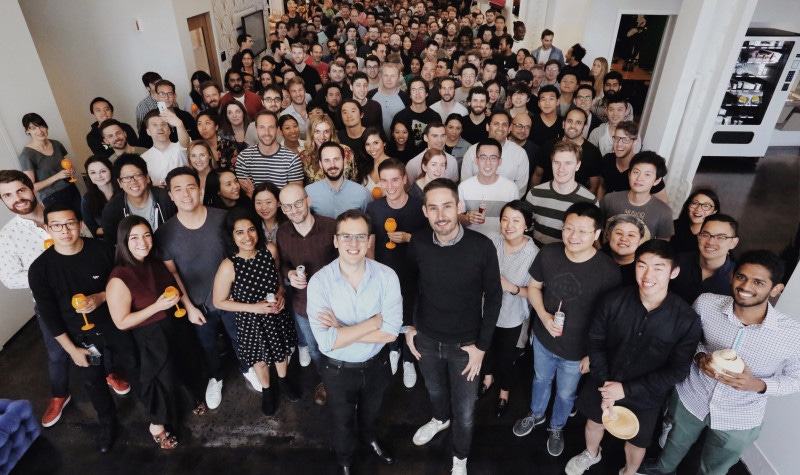In a move which should have Instagrammers all around the world worried, co-founders Kevin Systrom and Mike Krieger have decided to take their leave from the popular social media platform.
September 25, 2018

In a move which should have Instagrammers all around the world worried, co-founders Kevin Systrom and Mike Krieger have decided to take their leave from the popular social media platform.
With a short and sweet statement, Systrom has announced he and Krieger would be leaving the company they founded in 2010 to take a break and find themselves. While it might sound like the pair are readying their backpacks for a couple of months sipping beers and relaxing in hammocks, the wording does not suggest the Facebook business is in a particularly healthy state.
“We’re now ready for our next chapter,” wrote Systrom. “We’re planning on taking some time off to explore our curiosity and creativity again. Building new things requires that we step back, understand what inspires us and match that with what the world needs; that’s what we plan to do.”
This of course might mean nothing in particular, though it does seem to suggest the pair need to move elsewhere to flex their creative muscles. Is Systrom indirectly accusing Facebook and its legions of employees of lacking creativity and the absence of an environment to experiment with new ideas?
Having launched in 2010, the app proved to be an instant hit collecting one million users within the first two months. By the end of the first year, 10 million accounts had been created, a number which increased to over 800 million by the end of 2017. The platform was acquired in by Facebook in April 2012 for $31 billion in cash and stock, with CEO Mark Zuckerberg announcing in the most recent earnings call the one billion user mark had been passed. The last couple of quarters have seen commercial activity on the platform increase notably.
While those who own such platforms are perfectly entitled to monetize their ideas, Instagram has been protected from the over-commercialised approach which has plagued the Facebook platform and destroyed the user experience. A balance has to be struck between advertising and maintaining a platform which entertains and engages users. The Facebook platform risks running the wrong direction.
In retaining the services of the two co-founders, perhaps this was the protection the platform needed from money-hungry Zuckerberg. With these two exiting the business what will become of the Instagram platform?
The Facebook platform has been suffering recently. While it is certainly a money making machine, this drive towards profitability has seemingly impacted user experience and the appeal of the platform. User growth has been slowing, with some questioning whether the glass ceiling is fast approaching, though there does seem to be a lack of creative spark in the platform. New features have been remarkably similar (some might suggest identical) to that of competitors, suggesting there is more of a focus on sweating assets for profitability as opposed to creating a platform which is attractive and engaging for users.
Research also supports the premise competitors are doing better at engaging younger audiences than Facebook. The Pew Research Centre has suggested only 51% of US teens aged 13-17 use Facebook today, with only 10% listing it as their preferred social media platform, compared to Instagram (72% use), Snapchat (69%) and YouTube (85%). In the Center’s 2014-2015 survey of teen social media use, 71% of teens reported being Facebook users, while 52% said they had an Instagram account and 41% for Snapchat.
With Systrom and Krieger leaving the business, citing a search for creativity as the reason, the assumption of a lack of creativity is being reinforced. The big question which remains is what is in store for Instagram?
With one billion accounts, low-advertising penetration in comparison to other platforms and a focus on younger demographics, this would certainly be an attractive proposition for any advertisers. The team has also done a much better job of capitalising on the video trend than parent-company Facebook, offering more opportunity to engage the motion-hungry users.
As co-founders, Systrom and Krieger would have certainly been influential on the development of the platform, though how much of the commercial tides were the pair holding back? Once replacements have been lined-up we’ll have a better idea as to whether this is a transition from Instagram 1.0 to Instagrabcash 2.0. We suspect Zuckerberg and the rest of the Facebook executives will be eyeing up Instagram to bolster year-on-year advertising numbers.
Only time will tell whether Zuckerberg will be able to over-commercialise this platform and destroy customer experience once again, but Systrom’s indirect critique of the environment does not suggest the best of scenarios.
About the Author(s)
You May Also Like








.png?width=300&auto=webp&quality=80&disable=upscale)


_1.jpg?width=300&auto=webp&quality=80&disable=upscale)


.png?width=800&auto=webp&quality=80&disable=upscale)